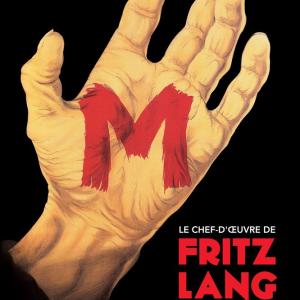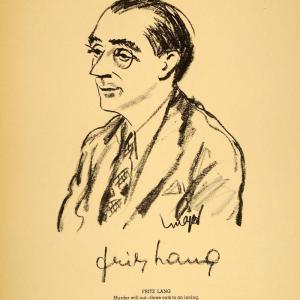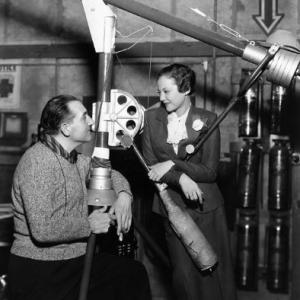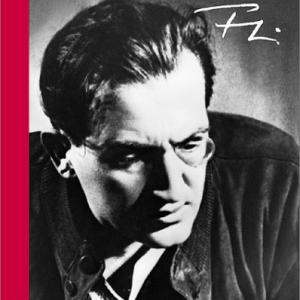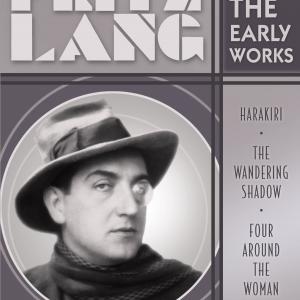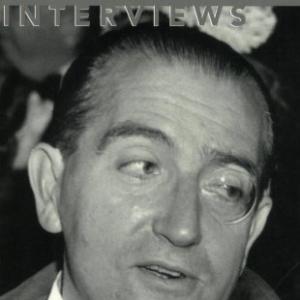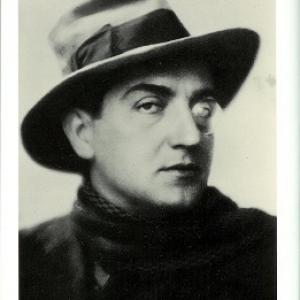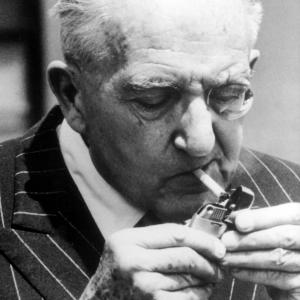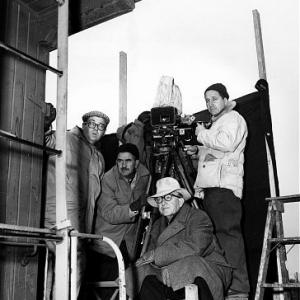Fritz Lang Net Worth
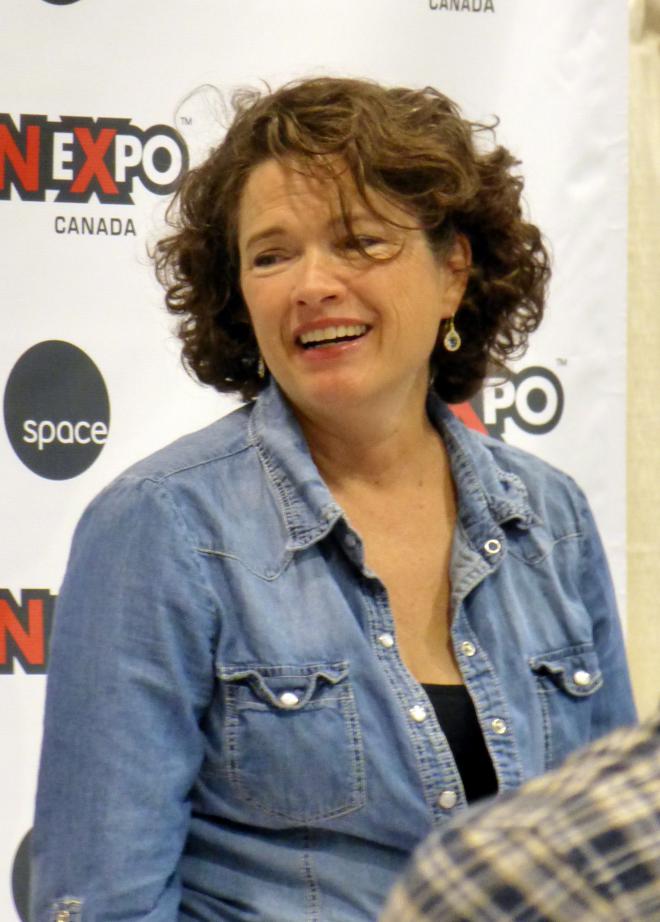
Fritz Lang Net Worth is
 $6 Million
$6 Million
Fritz Lang Bio/Wiki, Net Worth, Married 2018
Friedrich Christian Anton "Fritz" Lang (December 5, 1890 – August 2, 1976) was a German-Austrian filmmaker, screenwriter, and occasional film producer and actor. One of the best known émigrés from Germany's school of Expressionism, he was dubbed the "Master of Darkness" by the British Film Institute.His most famous films include the groundbreaking Metropolis (the world's most expensive silent film at the time of its release), and M, made before he moved to the United States, which is considered a precursor to the film noir genre. Fritz Lang played himself in Jean-Luc Godard’s film Contempt. | Full Name | Fritz Lang |
| Date Of Birth | December 5, 1890, Vienna, Austria |
| Died | August 2, 1976, Beverly Hills, California, United States |
| Place Of Birth | Vienna, Austria-Hungary [now Austria] |
| Height | 5' 11" (1.8 m) |
| Profession | Director, Writer, Producer |
| Education | TU Wien |
| Spouse | Lily Latte (m. 1971–1976), Thea von Harbou (m. 1922–1933), Lisa Rosenthal (m. 1919–1921) |
| Parents | Pauline Lang, Anton Lang |
| Siblings | Adolf Lang |
| Awards | German Film Award - Honorary Award, International Critics Award for Feature Films – Special Mention |
| Movies | Metropolis, M, Scarlet Street, Destiny, The Big Heat, Fury, The Testament of Dr. Mabuse, Woman in the Moon, Dr. Mabuse the Gambler, You Only Live Once, The Woman in the Window, Hangmen Also Die!, Spione, The Indian Tomb, Die Nibelungen: Siegfried, Man Hunt, The Tiger of Eschnapur, Beyond a Reasonabl... |
| Star Sign | Sagittarius |
| # | Trademark |
|---|---|
| 1 | His films are dark (both visually and in tone) |
| 2 | His protagonists are frequently hateful, violent but ultimately sympathetic figures |
| 3 | Usually wore a monocle, and probably only for dramatic effect |
| 4 | All his films feature a shot of his hand |
| # | Quote |
|---|---|
| 1 | To begin with I should say that I am a visual person. I experience with my eyes and never, or only rarely, with my ear--to my constant regret. |
| 2 | [asked in a 1975 interview if he ever met Raoul Walsh] I never traveled around meeting other directors. I wasn't haughty in this respect. It is just that all my life I have been so involved in my work that I guess one could say in general that, whenever I had to balance my private life and my profession, my profession always won out. |
| 3 | In America sex is preached, in France it is done. |
| 4 | [on Edward G. Robinson] Each part he plays, he enriches with deep and warm understanding of human frailties and compels us to pity rather than condemnation, always adding vivid color to the intricate mosaic of motion picture reality. |
| 5 | [on Erich von Stroheim] In my opinion, there were only two directors in Hollywood who made films without regard to box-office success: Von Stroheim and myself. |
| 6 | I do not like producers. |
| 7 | There was a time when all I looked for was a good story, but nowadays everything has to look like the size of Mount Rushmore, and the actors in close- up look as though they belong there. |
| 8 | Each picture has some sort of rhythm which only the director can give it. He has to be like the captain of a ship. |
| 9 | [about CinemaScope] It's only good for funerals and snakes. |
| # | Fact |
|---|---|
| 1 | Although he was losing his eyesight by the time he directed his last film, "The Thousand Eyes Of Dr. Mabuse", he did try to initiate subsequent projects for a few years, including an original screenplay by himself designed as a vehicle for Jeanne Moreau and a version of John Le Carre's novel, "A Murder Of Quality", which he discussed with the author. |
| 2 | Prior to World War I he had a keen interest in art. He often visited the Academy of Graphic Arts in Vienna and spent 1913 and 1914 as an artist in Paris, France. |
| 3 | In 1918 he met producer Erich Pommer in Berlin, who hired him as an actor and scriptwriter. |
| 4 | After he left Germany he made several pictures in France, then went to England and finally the US. It was there he helped found the Anti-Nazi League. |
| 5 | He was quite unhappy when a scene didn't come out exactly the way he wanted it to, and would often take out his frustrations on his cast and crew. |
| 6 | Unlike many silent-era directors, he welcomed the advent of sound, but didn't rush into it--while the sound era is generally agreed to have started in 1927, he didn't make a sound film until 1931, but it was one of his finest--M (1931). The film, a dark tale about a pedophile who molests and murders a little girl, was a smash international hit and made a star out of its lead, Peter Lorre. The film was especially meaningful to German audiences because of the recent cases of two serial-killing pedophiles, Peter Kurten and Fritz Haarman. |
| 7 | He was known in Berlin as something of a "man of the world", and was often seen wearing a monocle, which was fashionable in those days. |
| 8 | Despite his reputation as somewhat of a bully and tyrant while filming, he would often arrive on set at 7:00 am and stay until 11:00 pm or even later. |
| 9 | Lang made only a few movies in the 1920s compared to other German directors, but the relative few he made are considered classics of film history. |
| 10 | After a journey to America Lang returned to Germany to make what is probably his most famous work, Metropolis (1927). It was on this film that Lang acquired the reputation for being a "tyrant" on the set (even in the 1940s, long after he had settled in the US, many actors and actresses in Hollywood would refuse to work for him because of his abusive behavior on set). |
| 11 | In 1933 Nazi Propaganda Minister Joseph Goebbels invited Lang to his office for a talk. Goebbels offered him the leadership of the German movie business. Lang told him he would need to think it over, and when he left the meeting he went directly to the train station and hopped a train to Paris, France. |
| 12 | After the outbreak of World War I he volunteered for the Austro-Hungarian army and was sent to the front of Russia, Rumania and Italy, where he was wounded several times. He was awarded several medals for bravery. During his time in the military hospital he wrote his first scripts and one of them was very probably realized for the Stuart-Webbs serial of director Joe May After 1917 May adapted several of Lang's scripts for Das rollende Hotel (1918), the follow-up to the successful "Joe Deebs" serial Sein schwierigster Fall (1915). |
| 13 | He claims to have invented "the countdown" for dramatic purposes in his film Woman in the Moon (1929). His use of countdown is the first ever recorded, inspiring real life rocket launch sequences. |
| 14 | When he decided to leave Germany in 1933, his wife Thea von Harbou divorced him. She remained in Germany and made propaganda films for the Nazi regime. |
| 15 | Lang dubbed Peter Lorre's whistling in M (1931). He felt his off-key whistling was right for the character. |
| 16 | Producer Erich Pommer offered Lang The Cabinet of Dr. Caligari (1920), but the director felt the film's expressionistic style would not be understood by audiences. Instead he did Die Spinnen, 2. Teil - Das Brillantenschiff (1920), the last part of "The Spiders". |
| 17 | Lang was drafted into the Austro-Hungarian Imperial Army during WW I in 1915. As a lieutenant in Italy he was wounded in the shoulder, for which he was decorated. |
| 18 | An extensive interview with Peter Bogdanovich resulted in a book, "Fritz Lang in America" published by Praesger in 1967. |
| 19 | Learned to speak French and English as an adult in addition to his native German. |
| 20 | His second wife, Thea von Harbou, divorced him after finding some evidence of his intimate relationship with Lily Latte, who was his contact in Paris during his visits and then his stay in France. Lilly was also married, and also divorced shortly after, having lived with Lang and serving as his personal assistant, from 1931-71, when they were married. |
| 21 | His films, particularly his earlier work, were hugely influential and he was cited as influencing the work of directors such as Alfred Hitchcock, Luis Buñuel and Orson Welles. |
| 22 | Interviewed in Peter Bogdanovich's "Who the Devil Made It: Conversations With Robert Aldrich, George Cukor, Allan Dwan, Howard Hawks, Alfred Hitchcock, Chuck Jones, Fritz Lang, Joseph H. Lewis, Sidney Lumet, Leo McCarey, Otto Preminger, Don Siegel, Josef von Sternberg, Frank Tashlin, Edgar G. Ulmer, Raoul Walsh." NY: Alfred A. Knopf, 1997. |
| 23 | Was nearly blind at the time of his death. |
| 24 | Collected primitive art. |
| 25 | Second son of Anton Lang, an architect, and Pauline Schlesinger. |
| 26 | An animated version of Lang appeared in the Japanese animated movie "Full Metal Alchemist: Conquerors of Shamballa" (Fullmetal Alchemist the Movie: Conqueror of Shamballa (2005)). Originally mistaken by Edward Elric as being one of the Homonculi from his own world, this animated Lang aided Edward in his quest to return home. He was voiced by Hidekatsu Shibata. |
| 27 | President of the jury at the Cannes Film Festival in 1964. |
| 28 | His first wife, Lisa Rosenthal, committed suicide by shooting herself in the chest. It was rumoured that she did this after finding her husband in a compromising situation with Thea von Harbou. |
| 29 | Biography in: John Wakeman, editor. "World Film Directors, Volume One, 1890-1945." Pages 609-624. New York: The H.W. Wilson Company, 1987. |
| 30 | Was voted the 30th Greatest Director of all time by Entertainment Weekly. |
| 31 | Both in Germany and the United States, he was one of the most personally disliked directors around, a fact that hurt him at times in Hollywood because some actresses and actors would refuse to work with him. |
| 32 | As a soldier in the Austro-Hungarian army during World War I--he was an Austrian, not German as is commonly believed--he fought in Russia and Rumania, where he was wounded three times. He also fought in Italy, where he was also wounded, and wound up being commissioned as a lieutenant (he enlisted as a private). |
| 33 | Before his death in 1976, he planned to make a film about the hippie culture. |
| 34 | Interred at Forest Lawn (Hollywood Hills), Los Angeles, California, USA, in the Enduring Faith section, just to the right of plot #3818, two in from the curb. |
| 35 | According to Lang himself, on 25 March 1933, two days after Das Testament des Dr. Mabuse (1933) had been banned, he was summoned to the Nazi Ministry of Propaganda to meet with Joseph Goebbels himself. Goebbels explained the reason for the ban (the Nazi party slogans are fed into the mouth of the villain at the film's conclusion) and apologized to Lang. He then shocked Lang by offering him the position of production supervisor at the UFA studios, where his first film would be a biography of Wilhelm Tell. Lang claims he suspected a trap and attempted to throw off Goebbels by telling him, "My mother had Jewish parents," to which Goebbels responded, "We'll decide who's Jewish!" Lang then expressed interest in the position and said he needed some time to think it over. He describes how he looked at a clock and how during the entire meeting all he could think about was leaving as soon as possible so he could get to the bank and flee with all of his money. Lang says he didn't get there in time so he sold his wife's jewelry, boarded a train to Paris that same evening, leaving most of his money and personal possessions behind, along with his wife, Thea von Harbou, who divorced him later that year and went on to write and direct films for the Nazi propaganda machine. This story is possibly exaggerated by Lang for dramatic effect because there is evidence he left weeks after that. |
| 36 | Dorothy Parker once remarked, in reference to Lang's wife's "campaigning" for his career, "There's a man who got where he is by the sweat of his Frau." |
Director
| Title | Year | Status | Character |
|---|---|---|---|
| Journey to the Lost City | 1960 | ||
| The 1,000 Eyes of Dr. Mabuse | 1960 | ||
| The Indian Tomb | 1959 | ||
| Der Tiger von Eschnapur | 1959 | ||
| Beyond a Reasonable Doubt | 1956 | ||
| While the City Sleeps | 1956 | ||
| Moonfleet | 1955 | ||
| Human Desire | 1954 | ||
| The Big Heat | 1953 | ||
| The Blue Gardenia | 1953 | ||
| Clash by Night | 1952 | ||
| Rancho Notorious | 1952 | ||
| American Guerrilla in the Philippines | 1950 | ||
| House by the River | 1950 | ||
| Secret Beyond the Door... | 1947 | ||
| Cloak and Dagger | 1946 | ||
| Scarlet Street | 1945 | ||
| Ministry of Fear | 1944 | ||
| The Woman in the Window | 1944 | ||
| Hangmen Also Die! | 1943 | ||
| Moontide | 1942 | uncredited | |
| Confirm or Deny | 1941 | uncredited | |
| Man Hunt | 1941 | ||
| Western Union | 1941 | ||
| The Return of Frank James | 1940 | ||
| You and Me | 1938 | ||
| You Only Live Once | 1937 | ||
| Fury | 1936 | ||
| Liliom | 1934 | ||
| The Last Will of Dr. Mabuse | 1933 | ||
| Das Testament des Dr. Mabuse | 1933 | ||
| M | 1931 | ||
| Woman in the Moon | 1929 | ||
| Spies | 1928 | ||
| Metropolis | 1927 | ||
| Die Nibelungen: Kriemhilds Rache | 1924 | ||
| Die Nibelungen: Siegfried | 1924 | ||
| Dr. Mabuse: The Gambler | 1922 | ||
| Der müde Tod | 1921 | ||
| Vier um die Frau | 1921 | ||
| Das wandernde Bild | 1920 | ||
| Die Spinnen, 2. Teil - Das Brillantenschiff | 1920 | ||
| Harakiri | 1919 | ||
| Die Spinnen, 1. Teil - Der Goldene See | 1919 | ||
| Der Herr der Liebe | 1919 | ||
| Halbblut | 1919 |
Writer
| Title | Year | Status | Character |
|---|---|---|---|
| Metropolis | 2001 | film: "Metropolis" - uncredited | |
| Grande Teatro Tupi | 1963 | TV Series 1 episode | |
| Journey to the Lost City | 1960 | ||
| The 1,000 Eyes of Dr. Mabuse | 1960 | screenplay | |
| The Indian Tomb | 1959 | uncredited | |
| Der Tiger von Eschnapur | 1959 | uncredited | |
| El vampiro negro | 1953 | film "M" | |
| M | 1951 | original screenplay - uncredited | |
| Hangmen Also Die! | 1943 | adaptation - original story | |
| Fury | 1936 | screen play | |
| Liliom | 1934 | uncredited | |
| The Last Will of Dr. Mabuse | 1933 | scenario | |
| Das Testament des Dr. Mabuse | 1933 | writer | |
| M | 1931 | script | |
| Woman in the Moon | 1929 | screenplay | |
| Spies | 1928 | writer | |
| Metropolis | 1927 | screenplay - uncredited | |
| Die Nibelungen: Siegfried | 1924 | ||
| Dr. Mabuse: The Gambler | 1922 | ||
| Mysteries of India, Part I: Truth | 1921 | scenario | |
| Der müde Tod | 1921 | ||
| Vier um die Frau | 1921 | written by | |
| Mysteries of India, Part II: Above All Law | 1921 | scenario | |
| Das wandernde Bild | 1920 | ||
| Die Spinnen, 2. Teil - Das Brillantenschiff | 1920 | ||
| Die Herrin der Welt 8. Teil - Die Rache der Maud Fergusson | 1920 | ||
| Die Frau mit den Orchideen | 1919 | writer | |
| Die Rache ist mein | 1919/I | ||
| Lilith and Ly | 1919 | writer | |
| Wolkenbau und Flimmerstern | 1919 | writer | |
| Der Totentanz | 1919 | writer | |
| Die Pest in Florenz | 1919 | ||
| Die Spinnen, 1. Teil - Der Goldene See | 1919 | writer | |
| Bettler GmbH | 1919 | writer | |
| Halbblut | 1919 | writer | |
| Die Hochzeit im Excentricclub | 1917 | ||
| Hilde Warren und der Tod | 1917 | ||
| Die Peitsche | 1917 |
Producer
| Title | Year | Status | Character |
|---|---|---|---|
| The 1,000 Eyes of Dr. Mabuse | 1960 | producer - uncredited | |
| Secret Beyond the Door... | 1947 | producer | |
| Scarlet Street | 1945 | producer | |
| Hangmen Also Die! | 1943 | producer | |
| You and Me | 1938 | producer | |
| Das Testament des Dr. Mabuse | 1933 | producer | |
| Woman in the Moon | 1929 | producer |
Actor
| Title | Year | Status | Character |
|---|---|---|---|
| Contempt | 1963 | Fritz Lang | |
| Bande-annonce de 'Le mépris' | 1963 | Short | |
| Screen Snapshots: Hollywood Goes a Fishin' | 1956 | Short | Fritz Lang |
| Der Herr der Liebe | 1919 |
Assistant Director
| Title | Year | Status | Character |
|---|---|---|---|
| The Mistress of the World, Part Three: The City of Gold | 1919 | assistant director | |
| Mistress of the World, Number Two: The Race for Life | 1919 | assistant director |
Editor
| Title | Year | Status | Character |
|---|---|---|---|
| Der müde Tod | 1921 |
Thanks
| Title | Year | Status | Character |
|---|---|---|---|
| Boy 7 | 2015/II | thanks | |
| Jönssonligan & den svarta diamanten | 1992 | dedicatee - as Lang | |
| Alice or the Last Escapade | 1977 | in memory of |
Self
| Title | Year | Status | Character |
|---|---|---|---|
| Fritz Lang Interviewed by William Friedkin | 1975 | Documentary | Himself |
| Die schweren Träume des Fritz Lang | 1974 | TV Movie documentary | |
| 75 Years of Cinema Museum | 1972 | Documentary | Himself |
| Zum Beispiel: Fritz Lang | 1968 | Documentary short | Himself |
| Um uns die Fremde - Die Vertreibung des Geistes 1933-1945 | 1967 | TV Mini-Series documentary | Himself |
| Cinéastes de notre temps | 1967 | TV Series documentary | Himself |
| Paparazzi | 1964 | Short | Himself (uncredited) |
| Reflets de Cannes | 1964 | TV Series documentary | Himself |
| Encounter with Fritz Lang | 1964 | Short | Himself |
| Das war die UFA | 1964 | TV Series documentary | Himself |
| Le Parti des choses: Bardot et Godard | 1964 | Short | Himself |
| Das Künstlerporträt | 1959 | TV Series documentary | Himself |
| This Is Your Life | 1955 | TV Series | Himself |
| Der Film im Film | 1925 | Documentary | Himself |
Archive Footage
| Title | Year | Status | Character |
|---|---|---|---|
| Die Öscars | 2016 | TV Mini-Series documentary | Himself |
| Von Caligari zu Hitler: Das deutsche Kino im Zeitalter der Massen | 2014 | Documentary | Himself |
| Cinéphiles de notre temps | 2012 | TV Series documentary | Himself |
| Das Erbe der Nibelungen | 2011 | TV Movie documentary | Himself |
| Die Reise nach Metropolis | 2010 | TV Movie documentary | Himself |
| Deux de la Vague | 2010 | Documentary | Himself |
| Il était une fois... | 2009 | TV Series documentary | Himself |
| Deutsche Lebensläufe | 2007 | TV Series documentary | Himself |
| Un écran nommé désir | 2006 | TV Movie documentary | Himself |
| Filmmakers in Action | 2005 | Documentary | Himself (uncredited) |
| Mabuses Motive | 2004 | TV Movie documentary | Himself |
| Fritz Lang, le cercle du destin - Les films allemands | 2004 | TV Movie documentary | Himself |
| American Experience | 2004 | TV Series documentary | Himself |
| Der Fall Metropolis | 2003 | Video documentary | Himself |
| Das Jahrhundert des Theaters | 2002 | TV Series | Himself |
| Universal Horror | 1998 | TV Movie documentary | Himself |
| Cinema Europe: The Other Hollywood | 1995 | TV Mini-Series documentary | Himself |
| A Personal Journey with Martin Scorsese Through American Movies | 1995 | TV Movie documentary | Himself (uncredited) |
| Die UFA | 1992 | Documentary | |
| The Exiles | 1989 | Documentary | Himself |
| Filmemigration aus Nazideutschland | 1975 | TV Series documentary | Himself |
| World Cinema | 1973 | TV Series | Himself - Subject |
Won Awards
| Year | Award | Ceremony | Nomination | Movie |
|---|---|---|---|---|
| 2009 | OFTA Film Hall of Fame | Online Film & Television Association | Creative | |
| 1976 | Life Career Award | Academy of Science Fiction, Fantasy & Horror Films, USA | ||
| 1963 | Honorary Award | German Film Awards | For his continued outstanding individual contributions to the german film over the years. Fritz ... More | |
| 1960 | Star on the Walk of Fame | Walk of Fame | Motion Picture | On 8 February 1960. At 1600 Vine Street. |
| 1946 | International Critics Award - Special Mention | Venice Film Festival | Feature Films | Hangmen Also Die! (1943) |
Nominated Awards
| Year | Award | Ceremony | Nomination | Movie |
|---|---|---|---|---|
| 1961 | Best Film | Mar del Plata Film Festival | International Competition | Die 1000 Augen des Dr. Mabuse (1960) |
2nd Place Awards
| Year | Award | Ceremony | Nomination | Movie |
|---|---|---|---|---|
| 1937 | NYFCC Award | New York Film Critics Circle Awards | Best Director | Fury (1936) |
3rd Place Awards
| Year | Award | Ceremony | Nomination | Movie |
|---|---|---|---|---|
| 1943 | NYFCC Award | New York Film Critics Circle Awards | Best Director | Hangmen Also Die! (1943) |
